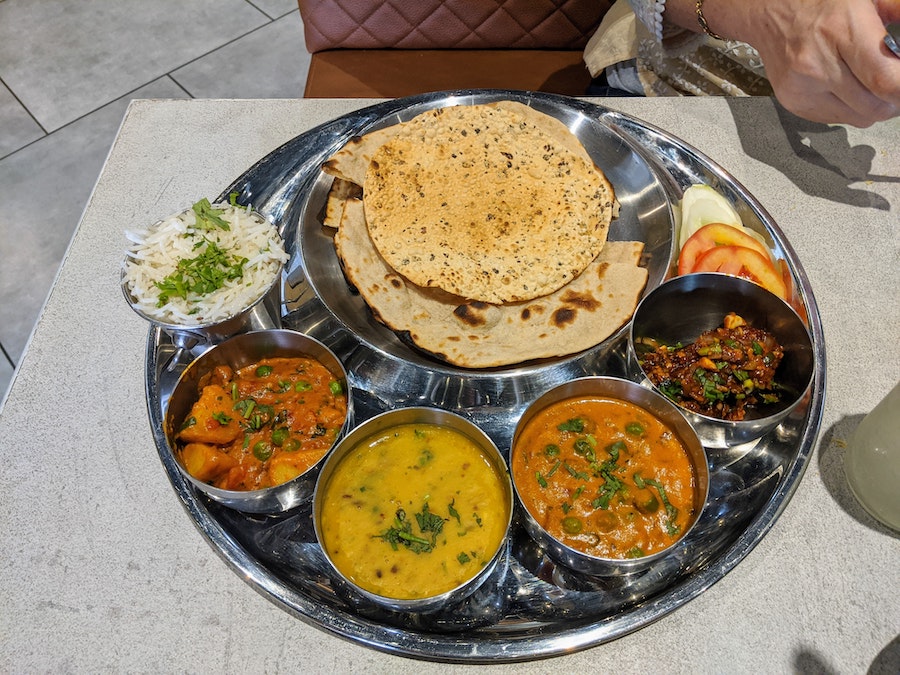Healthy eating is the key to success for which you need to know what to eat, how much to eat and what not to eat (Timing, Quantity and Quality).
To eat or not to eat is not the question, how to make the right decision about eating is the question.
We recommend three meals (breakfast, lunch and dinner) and three snacks. You can space the snacks in between your meals according to your lifestyle.
There are 6 components in the diet:
– Carbohydrate
– Fat
– Protein
– Mineral
– Vitamin
– Water
Restriction and distribution of carbohydrate throughout the day are important. The number of calories in rice and wheat are the same, but the protein content is high in wheat. Wheat has more fibre in comparison to rice. A mixed diet containing both rice and wheat is preferable.
1. Breakfast, Snack, Lunch, Snack, Dinner, Supper OR
2. Breakfast, Snack, Lunch, Snack, Snack, Dinner
Diet is a very important aspect in the treatment of Diabetes particularly the timing of it.
At the beginning you may be successful in controlling Diabetes with diet only, but unfortunately a time will come when only diet won’t be enough, you will require medicine.
It is very important to try with diet first; this will help you to understand the principles of diet.
A strict diet chart is something we are not advocating these days. A diet chart is not only monotonous but also difficult to follow day in and out.
A strict chart restrains your freedom to eat and also impossible to follow when you are out for social or professional reasons. Rather than a diet chart, you should have a meal plan.
Yes, not only can, you should eat fruit regularly. This is a very old concept that in Diabetes you cannot eat fruit.
You should know what fruit and how much you should eat.
You should take 3 to 5 portions of fruit every day (One portion of food is 1 medium apple or 1 guava or 1 pear or 1 orange or 1 small banana or 12-15 grapes or 1 slice of pineapple or 1 small bowl of papaya or 1 small bowl of melon, etc); you can choose what you like.
It is better to avoid dry fruits as they have very high calories as also Mango, Sapeta.
A general rule of thumb is 0.8 gm. of protein for each kg of body weight; 1.0 gm. of protein per kg for vegetarians for healthy maintenance.
Your main dietary focus should be unrefined foods, lots of veggies, and fish as a “flesh” of choice for accelerated body composition changes. Whole grains and plant foods contribute a vegetable protein source.
Occasionally yes, but do not make a habit of eating ice-cream on a regular basis.
Certainly yes, artificial sweeteners are safe. Do not put them in cooking, they break down when heated. So they will not be sweet any more if you boil them.
The moderate use of artificial sweeteners can help diabetics to make their diets more varied and acceptable.
If you are eating a balanced diet, there is no proven rule for extra vitamin. Vitamin is not the treatment of uncontrolled Diabetes.
People who are recovering from an infection or a surgery may require a vitamin for short period.
You can make one of your own choices. A homemade sandwich will be the perfect one. You can take small amount of noodle, sprouts, a medium size apple or non-sweet biscuits.
Remember soft drinks have a very high sugar in it, so if you are fond of them take the diet one.
Most of the cases, this is an excuse for not being planned. You need to know how to organise your day.
Days are changing and all of us are in much more stressful life than our forefathers.
Competitions are increasing day by day but we need to look after ourselves so that we are in the best physical and mental state to be successful.
If you are eating a balanced diet, there is no proven rule for extra vitamin. Some people take them for mental satisfaction.
Vitamin is not the treatment of uncontrolled Diabetes neither vitamin will help to control your Diabetes.
If for some reason or other you are not able to take regular meal, i.e., you had an operation or you are unwell, you may take some vitamin for a short while.